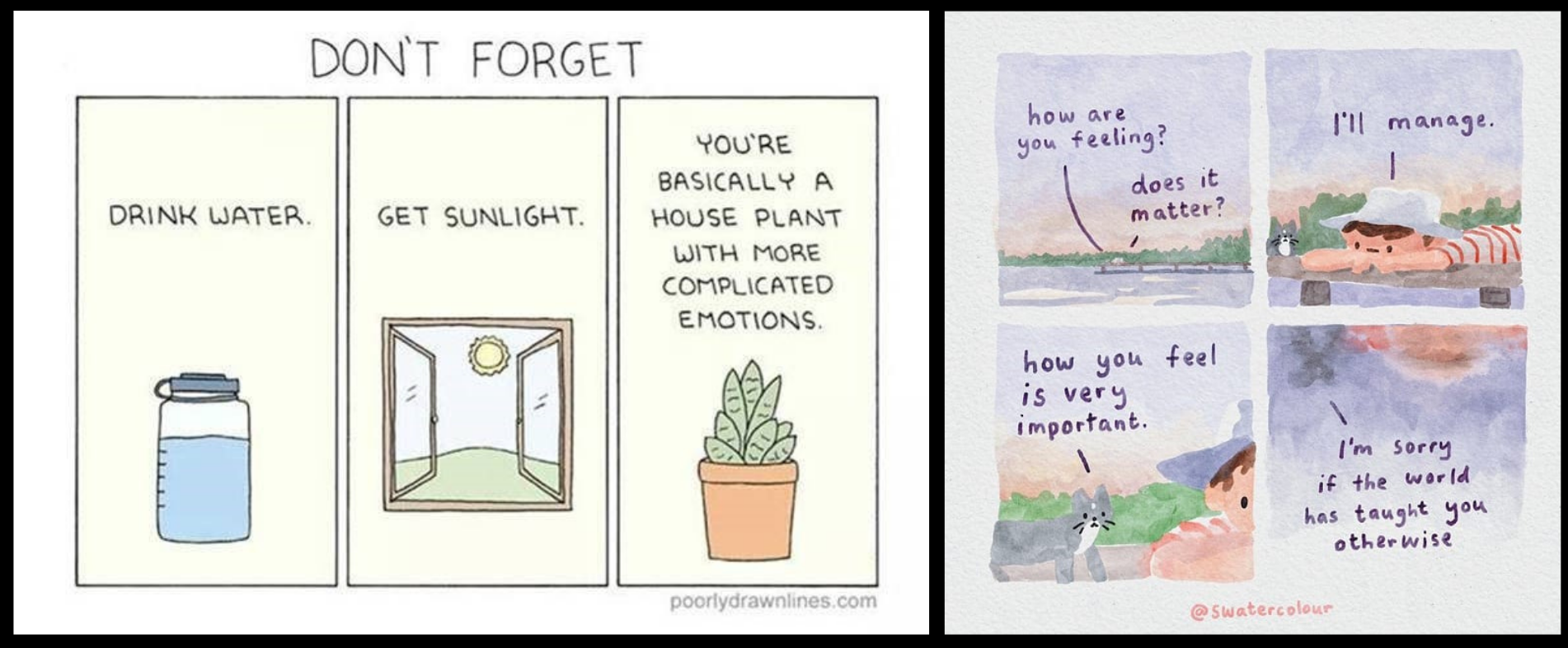It’s been a year. 2020 undoubtedly changed the way our society operates on a daily basis… but also in the way we mentally view the world. While the negative aspects of this past year have been evident since, well, we all felt it and lived it ourselves, there have also been positive elements. A call to social justice, positive environmental changes, and an increased awareness of mental health have been a handful of positive effects 2020 has brought.
The discomfort of this year has also forced us to confront parts of ourselves that we may not have otherwise. Reflection, turning inward, and reassessing what really matters in life… these arose when the world shut down. Avoiding these topics and allowing them to be lost in the waves of everyday busy life is often the easier approach than contemplating them head on, which exactly why I’d argue that 2020 has been undeniably important to humanity. We’re taking time to intentionally connect, we’re saving money, we’re investing in ourselves through hobbies and personal growth… we’re making bread, hoarding toilet paper, and starting gardens!
I say this in jest, and not to make light of the fact that for many, especially those working in the front lines, this year has been emotionally heartbreaking; perhaps showcasing the worst parts of what it means to be human. This all being said, here are the top major lessons I’ve learned after a year of pandemic living:
Unplugging from Social Media
The Netflix documentary The Social Dilemma was massively popular in 2020, and highlighted how detrimental social media usage can be for our mental wellbeing. Tristan Harris, one of the documentary’s leading voices, has discussed these negative implications in various interviews since the film’s release, which has sparked behaviour change in many individuals. The benefits of unplugging in favour of (sometimes uncomfortable) solitude have long been discussed: Bill Gates practices what he calls “Think Weeks” twice per year, a time to unplug, be alone, and well, think. Others have experienced great mental clarity from participating in this same sort of idea and perhaps, 2020 to present day can simply be reframed as one, big Think Year.
Emotional Intelligence Education
Time for some vulnerability. I’ve experience immeasurable gratitude for being able to work from home during this time, especially when this is contrasted with the experiences my immediate family describe as nurses and teachers. Despite my work being Disneyland, I have experienced rushes of frustration with technology that overwhelm me, bouts of anger, and profound sadness that seem to emerge from nowhere and then vanish just as rapidly. Various institutions have offered webinar sessions on emotional intelligence, which led to pursuing more books and resources on this topic. The beautiful thing about emotional intelligence is that the very act of knowing what is happening within you, and being able to put these feelings to words, automatically makes you better equipped to handle challenging emotions in the future.
Mindfulness: The Art of Slowing down & Simplifying
It doesn’t have to be meditating cross legged on a pillow. Setting daily intentions. Journaling (although if it is, you GO Glen Coco!). Mindfulness is simply the act of staying present in the activities that carry you through your day, rather than being pulled to the past, or anticipating the future. One idea that reshaped how I thought of mindfulness this year was the idea of taking everything in life 10% slower. That’s it. No special products, no magic routines. Just valuing simple, taking in life, and not seeing every day as something to get through, but to live through.
Flow States. Find them!
Joey Schweitz recently made a video that contained a quote that profoundly impacted me, and perhaps, will do the same for you: “If you find yourself constantly escaping from reality, then you need to work hard to create a reality you don’t want to escape from.” Gut punch. Society tends to hold very hedonistic values, where the entire goal of life is to pursue and experience as much pleasure as possible. However, humans are prone to experiencing hedonic adaption, where “people repeatedly return to their baseline level of happiness” creating a cycle of needing more and more pleasurable experiences to be satisfied. This year has offered an opportunity to pursue something different, and find our flow states where time simply slips away as we immerse ourselves in the activities that bring true meaning and value to our lives.
The Importance of Connection
Call your mom. Learn to make an old family recipe with your grandma over skype. Host virtual family game nights. Have mental health check ins with friends. This one needs little explanation; we’re all experiencing the loneliness epidemic to some capacity. Time is the most precious commodity we have, and to quote one of the greats, “Think of yourself as dead. You have lived your life. Now take what’s left and live it properly” (Marcus Aurelius).
All blog content is written on behalf of SUTIL Executive Member, Samantha Kitzul, and does not necessarily reflect the views of SUTIL as a whole, nor the post-secondary institutions SUTIL is comprised of.

